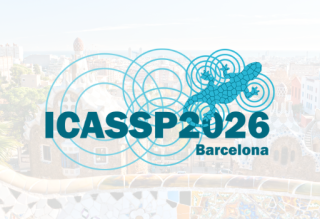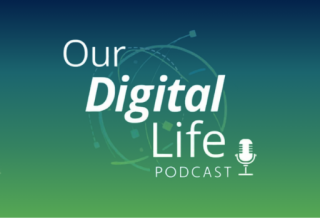- Our Story
- Publications & Resources
- Publications & Resources
- Publications
- IEEE Signal Processing Magazine
- IEEE Journal of Selected Topics in Signal Processing
- IEEE Signal Processing Letters
- IEEE Transactions on Computational Imaging
- IEEE Transactions on Image Processing
- IEEE Transactions on Information Forensics and Security
- IEEE Transactions on Multimedia
- IEEE Transactions on Signal and Information Processing over Networks
- IEEE Transactions on Signal Processing
- IEEE TCI
- IEEE TSIPN
- Data & Challenges
- Submit Manuscript
- Guidelines
- Information for Authors
- Special Issue Deadlines
- Overview Articles
- Top Accessed Articles
- SPS Newsletter
- SigPort
- SPS Resource Center
- Publications FAQ
- Blog
- News
- Dataset Papers
- Conferences & Events
- Community & Involvement
- Professional Development
- For Volunteers
- Information for Authors-OJSP
-
Home
Conferences Events IEEE Signal Processing Magazine IEEE SPL Article IEEE TIFS Article IEEE TMM Article IEEE TSP Article Jobs in Signal Processing Lectures Machine Learning Seasonal Schools Signal Processing News SPM Article SPS Distinguished Lectures SPS Newsletter Article SPS Webinar SPS Webinars SPS Webinar Series Webinar webinars
-
Our Story
What is Signal Processing?

The technology we use, and even rely on, in our everyday lives –computers, radios, video, cell phones – is enabled by signal processing. Learn More » -
Publications & Resources
-
SPS Resources
- Signal Processing Magazine The premier publication of the society.
- SPS Newsletter Monthly updates in Signal Processing
- SPS Resource Center Online library of tutorials, lectures, and presentations.
- SigPort Online repository for reports, papers, and more.
- SPS Feed The latest news, events, and more from the world of Signal Processing.
-
SPS Resources
-
Conferences & Events
-
Community & Involvement
-
Membership
- Join SPS The IEEE Signal Processing Magazine, Conference, Discounts, Awards, Collaborations, and more!
- Chapter Locator Find your local chapter and connect with fellow industry professionals, academics and students
- Women in Signal Processing Networking and engagement opportunities for women across signal processing disciplines
- Students Scholarships, conference discounts, travel grants, SP Cup, VIP Cup, 5-MICC
- Young Professionals Career development opportunities, networking
- Get Involved
-
Technical Committees
- Applied Signal Processing Systems
- Audio and Acoustic Signal Processing
- Bio Imaging and Signal Processing
- Computational Imaging
- Image Video and Multidimensional Signal Processing
- Information Forensics and Security
- Machine Learning for Signal Processing
- Multimedia Signal Processing
- Sensor Array and Multichannel
- Signal Processing for Communication and Networking
- Signal Processing Theory and Methods
- Speech and Language Processing
- Technical Working Groups
- More TC Resources
-
Membership
-
Professional Development
-
Professional Development
- Signal Processing Mentorship Academy (SigMA) Program
- Micro Mentoring Experience Program (MiME)
- Distinguished Lecturer Program
- Distinguished Lecturers
- Distinguished Lecturer Nominations
- Past Lecturers
- Distinguished Industry Speaker Program
- Distinguished Industry Speakers
- Distinguished Industry Speaker Nominations
- Industry Resources
- IEEE Training Materials
- Jobs in Signal Processing: IEEE Job Site
-
Career Resources
- SPS Education Program Educational content in signal processing and related fields.
- Distinguished Lecturer Program Chapters have access to educators and authors in the fields of Signal Processing
- Job Opportunities Signal Processing and Technical Committee specific job opportunities
- Job Submission Form Employers may submit opportunities in the area of Signal Processing.
-
Professional Development
-
For Volunteers
-
For Board & Committee Members
- Board Agenda/Minutes* Agendas, minutes and supporting documentation for Board and Committee Members
- SPS Directory* Directory of volunteers, society and division directory for Board and Committee Members.
- Membership Development Reports* Insight into the Society’s month-over-month and year-over-year growths and declines for Board and Committee Members
-
For Board & Committee Members
Popular Pages
Today's:
- Information for Authors
- (ICME 2026) 2026 IEEE International Conference on Multimedia and Expo
- IEEE Transactions on Information Forensics and Security
- IEEE Transactions on Image Processing
- Submit a Manuscript
- IEEE Transactions on Multimedia
- (ASRU 2025) 2025 IEEE Automatic Speech Recognition and Understanding Workshop
- Signal Processing Mentorship Academy (SigMA) Program
- Information for Authors-SPL
- Membership
- IEEE Transactions on Audio, Speech and Language Processing
- Conference Call for Papers
- Data Science Initiative
- IEEE Signal Processing Letters
- Access Restricted
All time:
- Information for Authors
- Submit a Manuscript
- IEEE Transactions on Image Processing
- IEEE Transactions on Information Forensics and Security
- IEEE Transactions on Multimedia
- IEEE Transactions on Audio, Speech and Language Processing
- IEEE Signal Processing Letters
- IEEE Transactions on Signal Processing
- Conferences & Events
- IEEE Journal of Selected Topics in Signal Processing
- Information for Authors-SPL
- Conference Call for Papers
- Signal Processing 101
- IEEE Signal Processing Magazine
- Guidelines
Last viewed:
- MLSP TC Home
- IEEE Fellows Program
- Series to Highlight Young Professionals in Signal Processing: Dr. Angshul Majumdar
- 2025 59th Asilomar Conference on Signals, Systems, and Computers
- Signal Processing Mentorship Academy (SigMA) Program
- Hamid Krim (NC State University, USA)
- Call for Project Proposals: IEEE SPS SigMA Program - Signal Processing Mentorship Academy
- IEEE Annual Election Results 2013
- Signal Processing Cup
- IEEE Journal of Selected Topics in Signal Processing
- Submit a Manuscript
- IEEE JSTSP Special Issue on Advancing Signal Processing Algorithms for Fluid Antenna Systems (FAS)
- SPS Scholarship Program
- (ICME 2026) 2026 IEEE International Conference on Multimedia and Expo
- (ISBI 2026) 2026 IEEE 23rd International Symposium on Biomedical Imaging
L3DAS21: Machine Learning for 3D Audio Signal Processing
You are here
Publications & Resources
For Authors
Top Reasons to Join SPS Today!
1. IEEE Signal Processing Magazine
2. Signal Processing Digital Library*
3. Inside Signal Processing Newsletter
4. SPS Resource Center
5. Career advancement & recognition
6. Discounts on conferences and publications
7. Professional networking
8. Communities for students, young professionals, and women
9. Volunteer opportunities
10. Coming soon! PDH/CEU credits
Click here to learn more.
L3DAS21: Machine Learning for 3D Audio Signal Processing
3D audio is gaining increasing interest in the machine learning community in recent years. The field of application is incredibly wide and ranges from virtual and real conferencing to game development, music production, autonomous driving, surveillance and many more. In this context, Ambisonics prevails among other 3D audio formats for its simplicity, effectiveness and flexibility. Ambisonic recordings permit to obtain an impressive performance in many machine learning-based tasks, usually bringing out a significant improvement over the mono and stereo formats. Tasks like Sound Source Localization, Speech and Emotion Recognition, Sound Source Separation Separation, Speech Enhancement and Denoising, Acoustic Echo Cancellation, among others, benefit from tridimensional representations of sound field, thus leading to higher accuracy and perceived quality.
The L3DAS project (Learning 3D Audio Sources) aims at encouraging and fostering research on the afore-mentioned topics. In particular, the L3DAS21 Challenge focuses on 2 tasks: 3D Speech Enhancement and 3D Sound Event Localization and Detection, both relying on Ambisonics recordings. First, provide the training and development sets, alongside with a supporting python-based API to facilitate the data download and pre-processing. We also supply baseline results for both tasks, obtained using state-of-the art deep learning architectures. In a second step, we will release the test sets without truth labels.
Participants must submit the results obtained for the latter. In the end, the final ranking of the challenge will be presented at the IEEE Workshop on MLSP and released on the challenge webpage. Full Challenge Document (pdf).
SPS Social Media
- IEEE SPS Facebook Page https://www.facebook.com/ieeeSPS
- IEEE SPS X Page https://x.com/IEEEsps
- IEEE SPS Instagram Page https://www.instagram.com/ieeesps/?hl=en
- IEEE SPS LinkedIn Page https://www.linkedin.com/company/ieeesps/
- IEEE SPS YouTube Channel https://www.youtube.com/ieeeSPS
Home | Sitemap | Contact | Accessibility | Nondiscrimination Policy | IEEE Ethics Reporting | IEEE Privacy Policy | Terms | Feedback
© Copyright 2025 IEEE - All rights reserved. Use of this website signifies your agreement to the IEEE Terms and Conditions.
A public charity, IEEE is the world's largest technical professional organization dedicated to advancing technology for the benefit of humanity.







